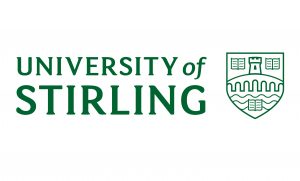Agues
|
fevers
|
Anent
|
concerning
|
Bailies
|
town magistrates on town councils
|
Benefices
|
church income or living often form church lands
|
Brieve
|
a legal writ or official document
|
Bullion
|
precious metals (usually silver and gold)
|
Burgess
|
merchant or craftsman licensed to trade in a burgh
|
Burgh of barony
|
burgh where the superior was a baron not the king
|
Cambric
|
fine white linen from Cambrai in French Flanders
|
Casualties
|
profits available to superior of landed property
|
Caution
|
bail payment guaranteeing good behaviour/or threat of such payment
|
Chalders
|
a measure of capacity used normally for grain
|
Chancellor
|
usual head of administration with responsibility over certain writs
|
Clerk Register
|
responsible for maintaining /ordering the records/archives of Scotland
|
Coalheughs
|
coal workings
|
Commissioners of Supply
|
responsible for land valuation following land tax introduced in 1667
|
Common weal
|
the commonwealth, the general population
|
Controverted election
|
disputed elections to parliament
|
Convention of estates
|
a gathering similar to a full parliament but called at shorter notice and without the judicial powers of a full parliament but with tax raising power.
|
Dean of guild
|
head of a merchant or craft guild
|
Deforcement
|
crime of preventing by force the discharge of duty
|
Dittay
|
An indictment or charge
|
Escheat[ing]
|
confiscation
|
Farmerers
|
those who have purchases the right to collect certain taxes
|
Forfeiture
|
punishment of forfeiting goods or land
|
Heritors
|
landowners of heritable property
|
Horning
|
process of technical outlawry if official instructions not obeyed
|
Infeftments
|
confirmation of the ownership of land by inheritance, gift or purchase
|
Instruments
|
authorised record. To ‘ask instruments’ to ask that such a record is made
|
Justice Clerk
|
head of the Court of Justiciary that presided over criminal cases
|
Landward
|
outwith the towns
|
Leasing-making
|
crime of spreading ideas damaging the harmony of the nation and the relationship between the crown and the people.
|
Letters of horning
|
letter from crown to individual demand payment or performance under penalty of outlawry.
|
Liferenter
|
right to revenues from property until death
|
Lord Advocate
|
chief law officer of crown and chief prosecutor
|
Lord Governor
|
sometimes used as alternative to regent
|
Macers
|
officer of the crown who delivered writs and summonses
|
Magistrates
|
bailies who formed the burgh courts
|
Martinmass
|
11 November, celebrating the feast of St. Martin
|
Merks
|
an amount of money used in reckoning, 13s 4. or two-thirds of a pound Scots.
|
Old extent
|
valuation for lands supposedly based on figures of the 13th century.
|
Pursuivants
|
messengers below the rank of heralds
|
Privy Council
|
king’s council or secret council of advisers which met regularly to carry out routine government business.
|
Privy Seal
|
the Lord Privy Seal was responsibly for the royal privy seal that was used to instruct the Great Seal to be used to authenticate charters and also to confirm gifts of pensions and appointments.
|
Relagities
|
land or territory subject to the jurisdiction granted by the crown to a powerful subject
|
Remeed
|
remedy
|
Resetters
|
those selling stolen goods
|
Royal burgh
|
a burgh where the superior is the crown
|
Secret Council
|
alternative name for Privy Council
|
Sorner
|
scrounger
|
Staple port
|
European port where Scots traded duty free in staple goods such as linen, wool, salt, skins and coal.
|
Stent
|
a local or national taxation or assessment
|
Stewards
|
administrator of crown property in a stewartry as opposed to a sheriff who administered a sheriffdom
|
Under the pain
|
under threat of a specific punishment
|
Wadsetters
|
lands pledged in lieu of debts
|
Warding
|
feudal tenure by means of military service or equivalent financial alternatives if this is not forthcoming or possible
|
Writer to the signet
|
solicitor
|

